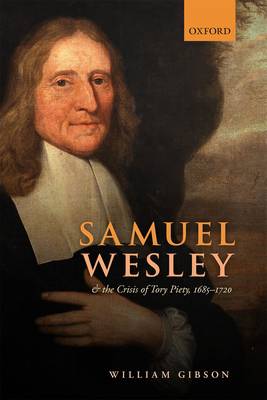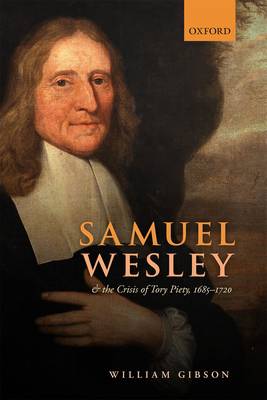
Bedankt voor het vertrouwen het afgelopen jaar! Om jou te bedanken bieden we GRATIS verzending (in België) aan op alles gedurende de hele maand januari.
- Afhalen na 1 uur in een winkel met voorraad
- In januari gratis thuislevering in België
- Ruim aanbod met 7 miljoen producten
Bedankt voor het vertrouwen het afgelopen jaar! Om jou te bedanken bieden we GRATIS verzending (in België) aan op alles gedurende de hele maand januari.
- Afhalen na 1 uur in een winkel met voorraad
- In januari gratis thuislevering in België
- Ruim aanbod met 7 miljoen producten
Zoeken
€ 217,95
+ 435 punten
Omschrijving
Samuel Wesley and the Crisis of Tory Piety, 1685-1720 uses the experiences of Samuel Wesley (1662-1735) to examine what life was like in the Church of England for Tory High Church clergy. These clergy felt alienated from the religious and political settlement of 1689 and found themselves facing the growth of religious toleration. They often linked this to a rise in immorality and a sense of the decline in religious values. Samuel Wesley's life saw a series of crises including his decision to leave Dissent and conform to the Church of England, his imprisonment for debt in 1705, his shortcomings as a priest, disagreements with his bishop, his marriage breakdown and the haunting of his rectory by a ghost or poltergeist. Wesley was also a leading member of the Convocation of the Church during the crisis years of 1710-14. In each of these episodes, Wesley's Toryism and High Church principles played a key role in his actions. They also show that the years between 1685 and 1720 were part of a 'long Glorious Revolution' which was not confined to 1688-9. This 'long Revolution' was experienced by Tory High Church clergy as a series of turning points in which the Whig forces strengthened their control of politics and the Church. Using newly discovered sources, and providing fresh insights into the life and work of Samuel Wesley, William Gibson explores the world of the Tory High Church clergy in the period 1685-1720.
Specificaties
Betrokkenen
- Auteur(s):
- Uitgeverij:
Inhoud
- Aantal bladzijden:
- 256
- Taal:
- Engels
Eigenschappen
- Productcode (EAN):
- 9780198870241
- Verschijningsdatum:
- 25/04/2021
- Uitvoering:
- Hardcover
- Formaat:
- Genaaid
- Afmetingen:
- 163 mm x 236 mm
- Gewicht:
- 544 g

Alleen bij Standaard Boekhandel
+ 435 punten op je klantenkaart van Standaard Boekhandel
Beoordelingen
We publiceren alleen reviews die voldoen aan de voorwaarden voor reviews. Bekijk onze voorwaarden voor reviews.









